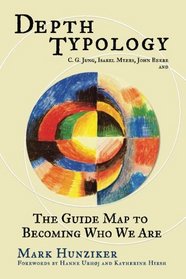Search -
Depth Typology: C. G. Jung, Isabel Myers, John Beebe and The Guide Map to Becoming Who We Are
Depth Typology C G Jung Isabel Myers John Beebe and The Guide Map to Becoming Who We Are
Author:
Personality type has always helped us appreciate our gifts and accept our blind-spots. Now ?depth typology? reveals our undiscovered talents and deepest challenges as well. Depth Typology C. G. Jung, Isabel Myers, John Beebe, and The Guide Map to Becoming Who We Are describes the expanded framework and whole-psyche dynamics of Jungian analyst Jo... more »
Author:
Personality type has always helped us appreciate our gifts and accept our blind-spots. Now ?depth typology? reveals our undiscovered talents and deepest challenges as well. Depth Typology C. G. Jung, Isabel Myers, John Beebe, and The Guide Map to Becoming Who We Are describes the expanded framework and whole-psyche dynamics of Jungian analyst Jo... more »
ISBN-13: 9780997607604
ISBN-10: 0997607602
Publication Date: 7/5/2016
Pages: 396
Rating: ?
ISBN-10: 0997607602
Publication Date: 7/5/2016
Pages: 396
Rating: ?
0 stars, based on 0 rating
Publisher: Write Way Publishing Company
Book Type: Paperback
Members Wishing: 2
Reviews: Amazon | Write a Review
Book Type: Paperback
Members Wishing: 2
Reviews: Amazon | Write a Review
Genres:
- Health, Fitness & Dieting >> Psychology & Counseling >> Applied Psychology
- Medical Books >> Psychology >> Applied Psychology




